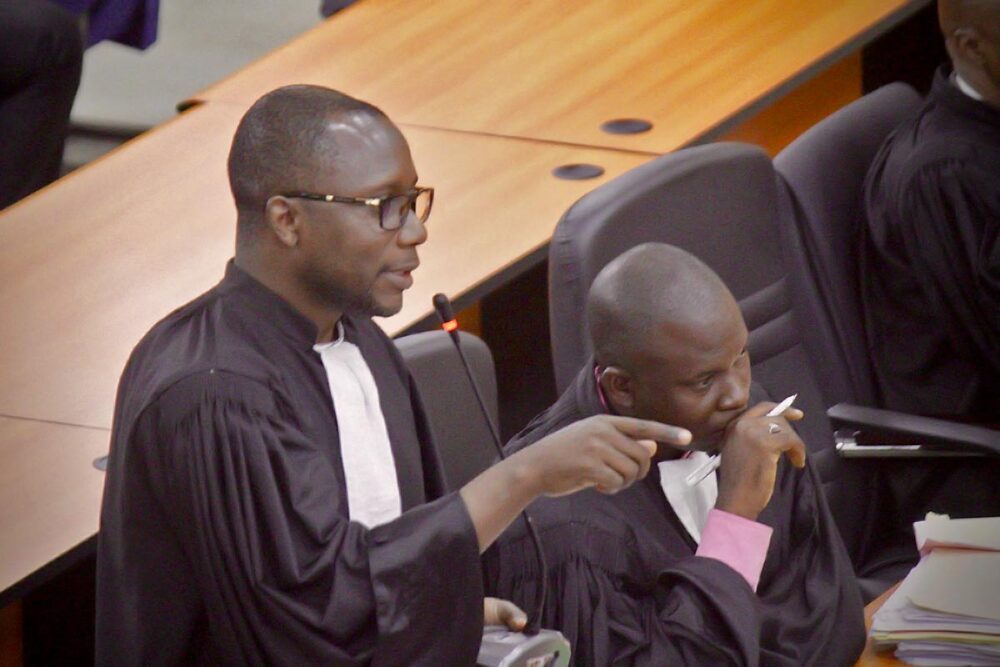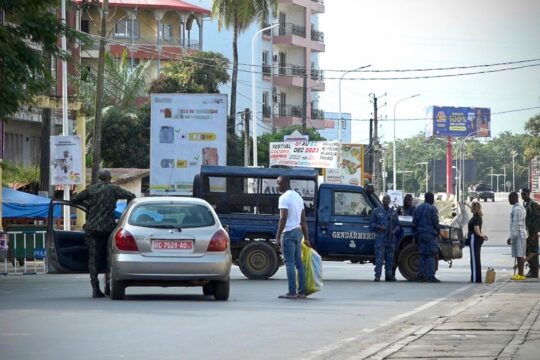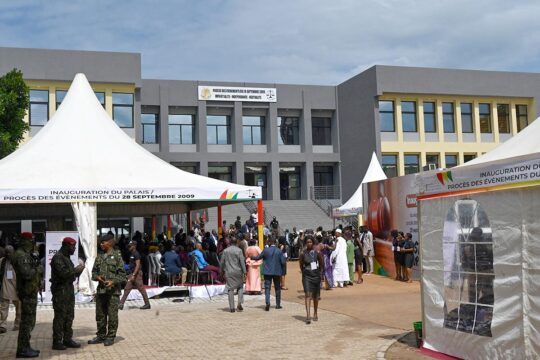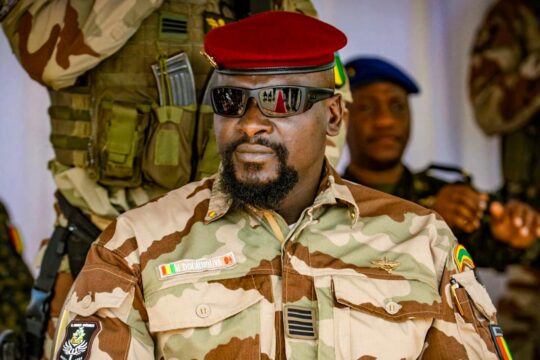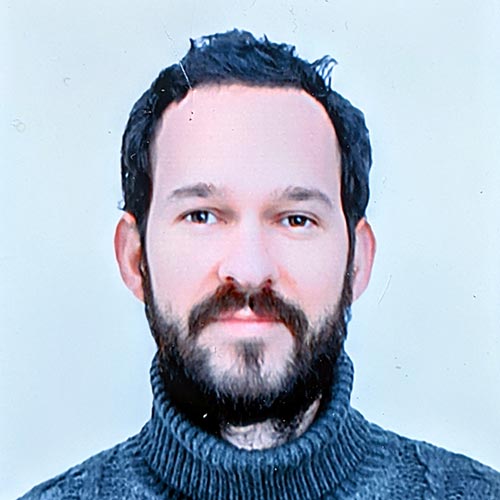The shadow of the fugitive, who was taken out of Conakry’s central prison by an armed commando on November 4, hangs over the Dixinn criminal court. Indicted for his alleged participation in the September 28, 2009 massacre when he was minister in charge of presidential security, he is still on the run. His absence undermines this trial, which is judging the highest political and military officials of former president Moussa Dadis Camara's regime.
In the dock, with a scowl on his face and his head buried in his shoulders, Pivi no longer impressed anyone. The former red beret, who had maintained a certain influence within the army up to the opening of the trial, had lost all his power. His break out of jail reshuffles the cards. The civil parties and their lawyers, as well as the witnesses they wanted to call to the stand, are worried, just as a new phase of the trial is due to begin on Monday February 12. After hearing the prosecution's witnesses, the court will hear those of the civil parties. To better prepare for this stage, the lawyers requested a postponement of the hearing and were granted an extra week. But will this delay be enough to convince the most reluctant to take the stand?
"People don't want to risk their lives," says lawyer for the civil parties Halimatou Camara. She thinks what is happening was foreseeable: "It's classic. It even happens at the International Criminal Court. If you take the case against Uhuru Kenyatta [former Kenyan president], you realize that the case completely crumbled because evidence and witnesses were concealed, people were bought off, or in any case forced not to speak." Those who have evidence against the accused are always vulnerable, "especially when it comes to serious crimes, abominable crimes", she continues. And when, as in Guinea, "there is no policy to protect witnesses, or even victims, things get complicated".
Law not enforced
Just before the trial began, a law was passed providing for the protection of "persons at risk". It has never yet been applied in this mass trial, the first of its kind in Guinea, where the victims and witnesses number in the thousands. On September 28, 2009, in Conakry's stadium, an attack on an opposition rally by security forces left more than 150 people dead and hundreds wounded, according to the final report of an international commission of inquiry.
As the hearings resumed on October 3, 2023, human rights organizations called for a decree implementing the law. “It's urgent," said the president of Avipa, the Association of Victims, Relatives and Friends of September 28, 2009. While more than a hundred women, according to the prosecution, were raped during the massacre and in the days that followed, several of them were worried after testifying in court, explains Asmaou Diallo. "Some are threatened, forced to change their accommodation, because they don't feel safe at all." And Pivi's escape has raised the level of concern among the survivors.
The consequences are disastrous for the appearance of the civil parties' witnesses. Before the opening of the trial, as required by procedure, the lawyers had provided a list of the people they wanted to appear -- some 15 in all. "The problem, after a year and a half's trial and Claude Pivi's escape, is that most of the witnesses we had on the list no longer want to testify because they don't feel safe," says Alpha Amadou DS Bah, coordinator of the victims' lawyers' collective.
"I prefer to live”
Over the first few months, the trial helped to free up people's voices. Strong testimonies were heard. But a cloud now hangs over the hearings. According to Bah, many witnesses "point the finger at Pivi", but "since he's on the run, those with credible information against him no longer want to testify. We don't know where Pivi is, and there are no concrete protection measures. We fully understand their position”. And for those who find the courage to take the stand, many are considering doing so behind closed doors.
This affects the trial, says the lawyer. The measure prevents the public from being informed of what happens during the hearings. "Unfortunately, we have to resort to this.” It's inconceivable, he says, to risk reprisals. "Even now when we call them, as soon as they know it's the collective they don't pick up the phone. Or else they say ‘I'm not interested, I'd rather live, I don't see what the point is for me to go and testify and then get killed'."
There is, however, a solution to avoid closed-door hearings. A room has been set up on the first floor of the courtroom where people requesting anonymity were to be heard. In the courtroom, only their voices, distorted by software, were to be heard. But this has never been used.
Bah is hoping for a further postponement to gather more witnesses, although he acknowledges that this is now "unlikely". On the contrary, the proceedings are speeding up. Of the 40 witnesses summoned by the public prosecutor's office, only 14 were actually heard. According to some lawyers, there is a desire to get things over with quickly.
At the same time, military personnel could be added to the ranks of the accused. Five of those implicated during the hearings have now been indicted. All have appealed, and the courts have yet to reach a decision. But the trial continues to move forward. "It's going to be difficult for them to join us, because we'll have gone through so many stages that we won't be able to parachute them in at that point," says Bah. A second trial would then have to be organized to finish trying those responsible for the massacre. "That would be really dramatic," concludes the lawyer.


